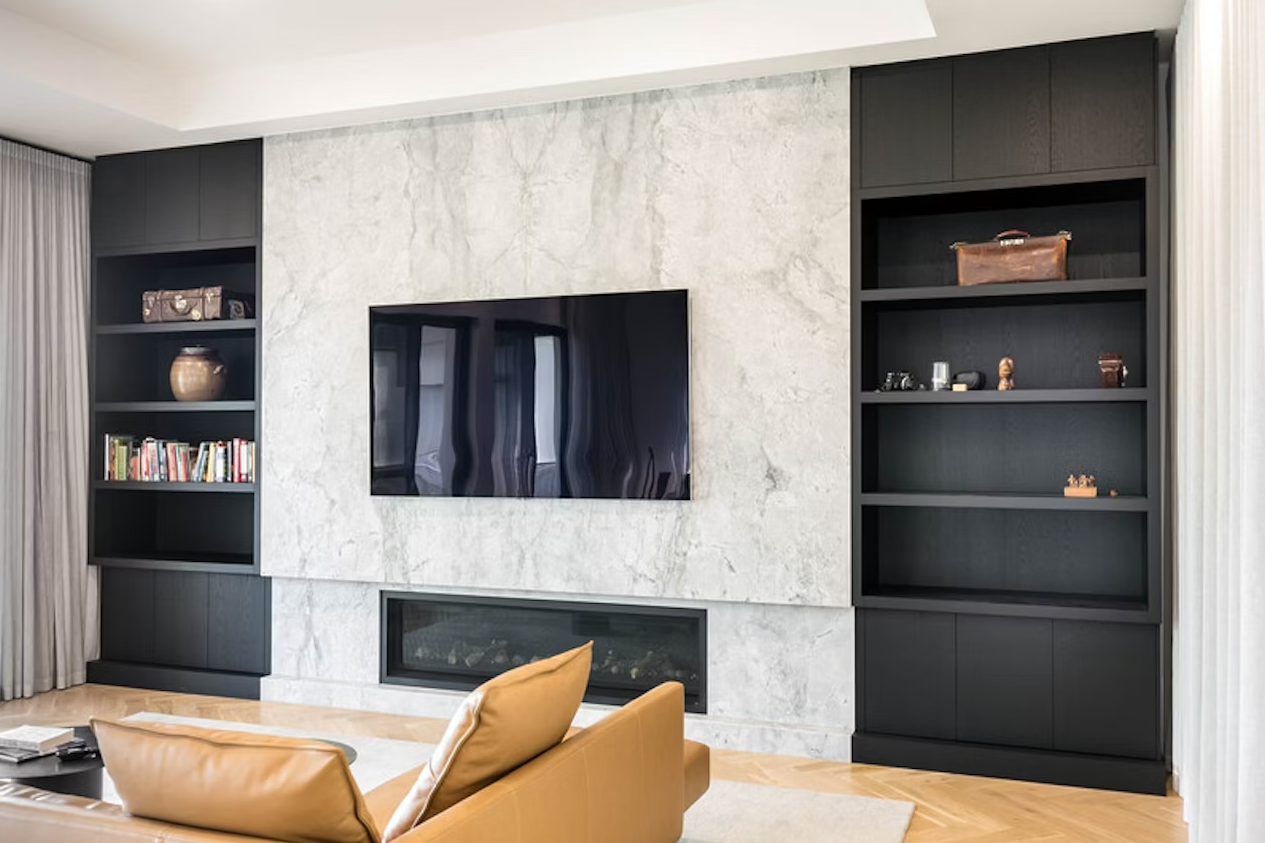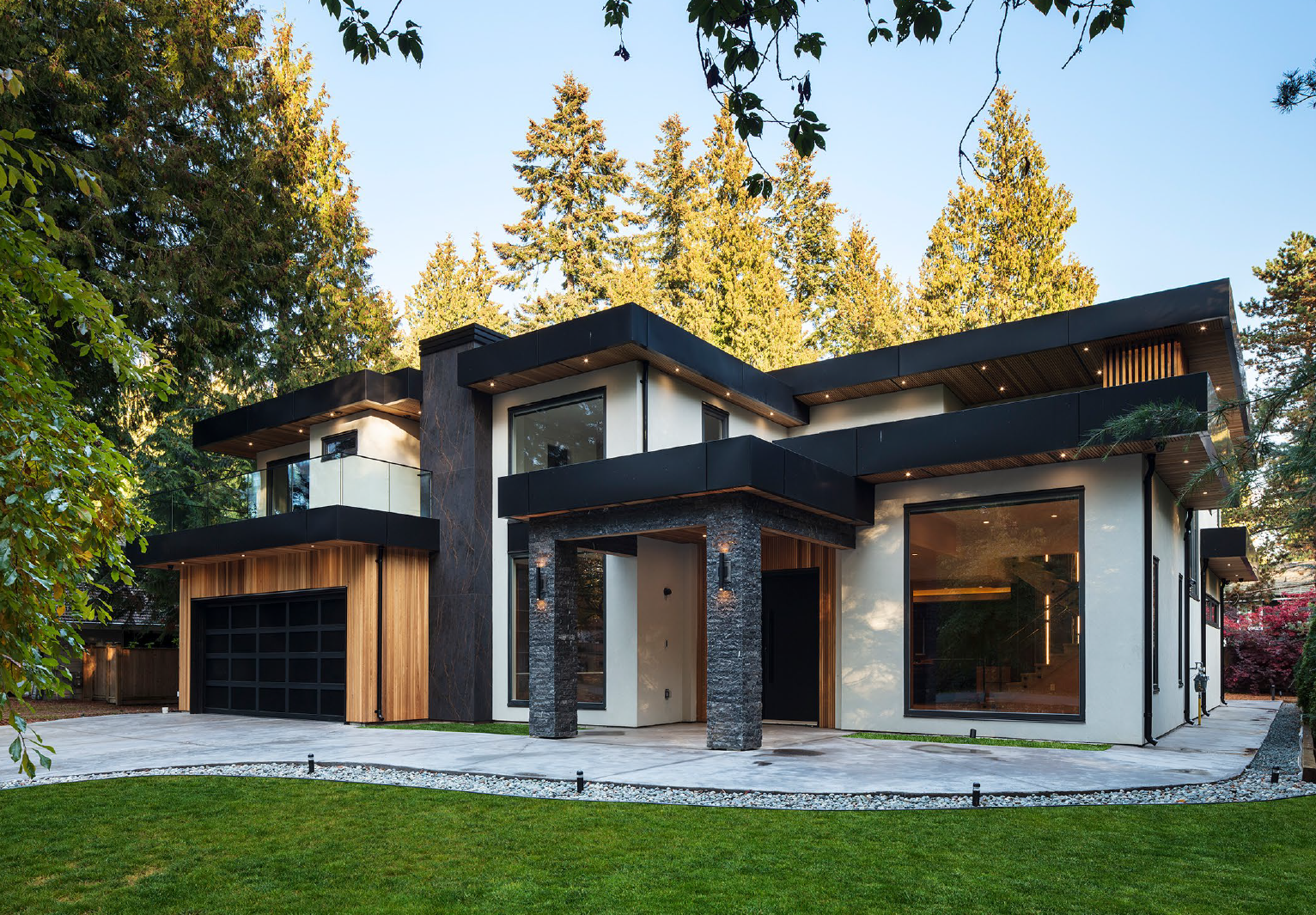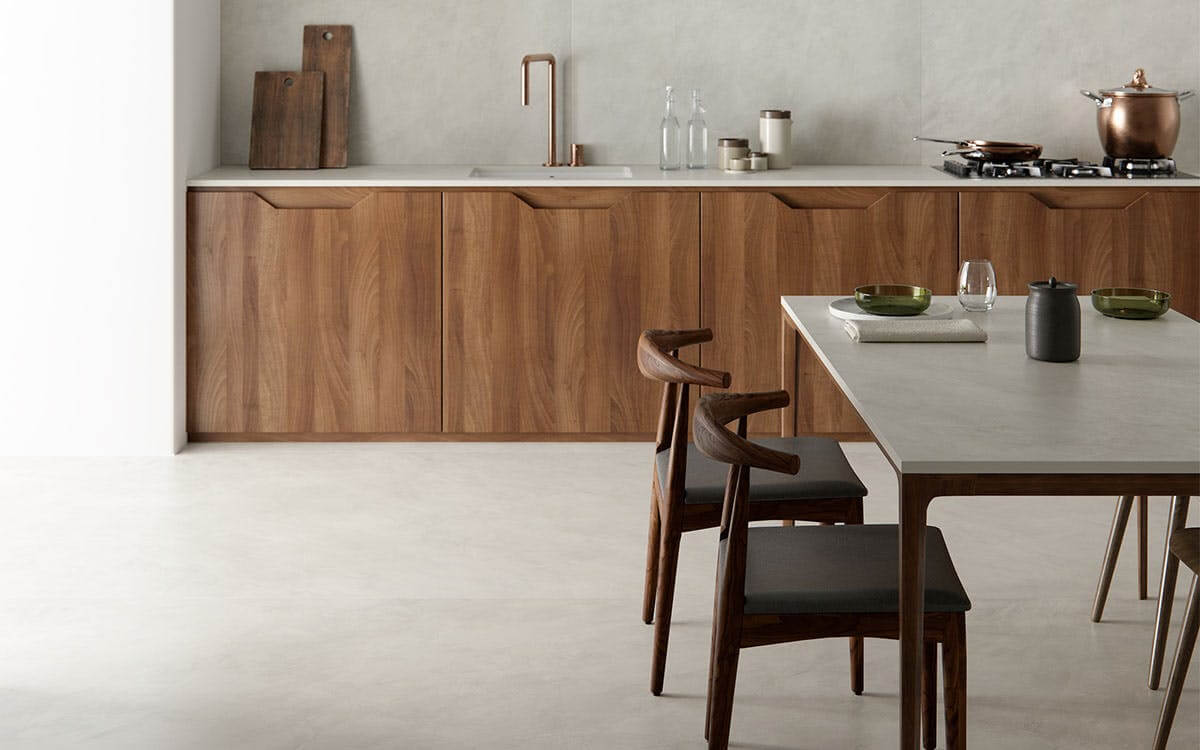When it comes to choosing the perfect kitchen countertop, two materials often stand out: Dekton and quartz. Both offer their own unique benefits and challenges, making the right choice fundamental for your kitchen’s overall design and functionality.
In this blog, we will explore the characteristics of Dekton vs Quartz countertops, helping you make a confident and informed decision for your kitchen design.
Dekton vs Quartz: A Material Overview
What is Dekton?
Dekton is an innovative surface material created using a sophisticated blend of raw materials including porcelain, quartz, glass and natural minerals. These components are manufactured with 25,000 tons of pressure and baked at high temperatures to create a material that is dense, non-porous and exceptionally durable. This process is known as “Sinterized Particle Technology” which accelerates the natural stone’s metamorphic process, producing a highly versatile material.
Dekton kitchen countertops are renowned for their resistance to scratches, stains and thermal shock, making them an excellent choice for busy kitchens.
What is Quartz?
Quartz countertops are crafted from natural quartz crystals mixed with resin and pigments, creating a durable and non-porous surface. This engineered stone is available in a wide range of colours and patterns, offering homeowners an array of endless design possibilities.
Quartz is known for its stain resistance, scratch resistance and low maintenance, making it a popular choice for busy kitchens. The material’s non-porous attriubutes also prevents bacterial growth, ensuring a hygienic surface for food preparation.
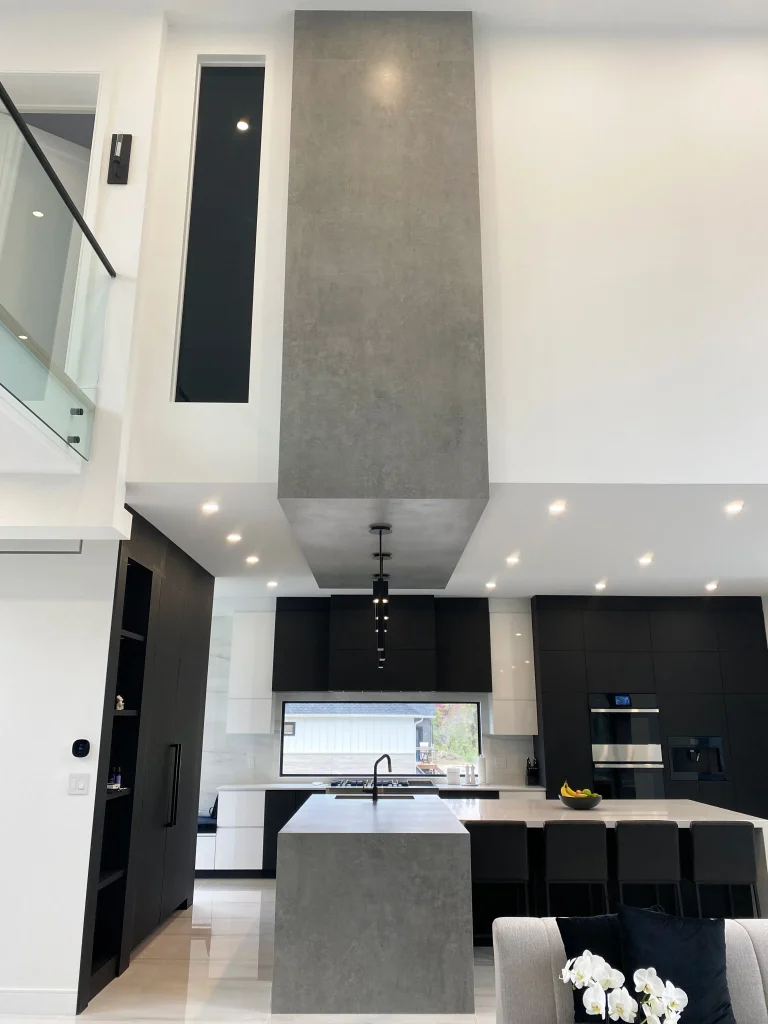
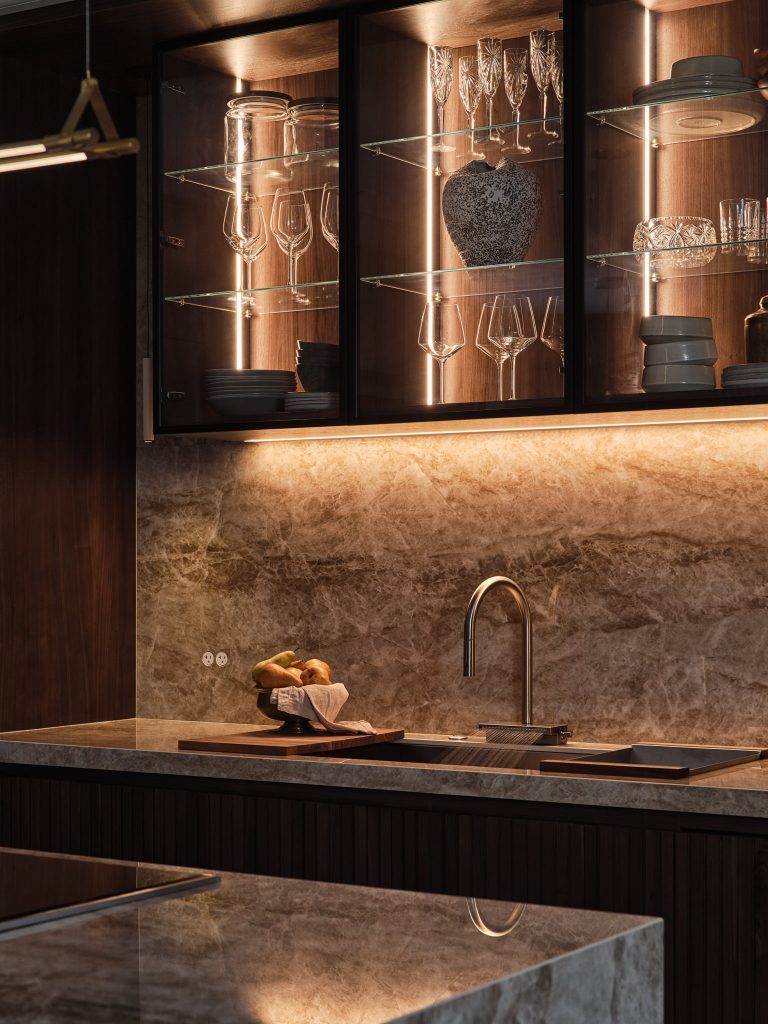
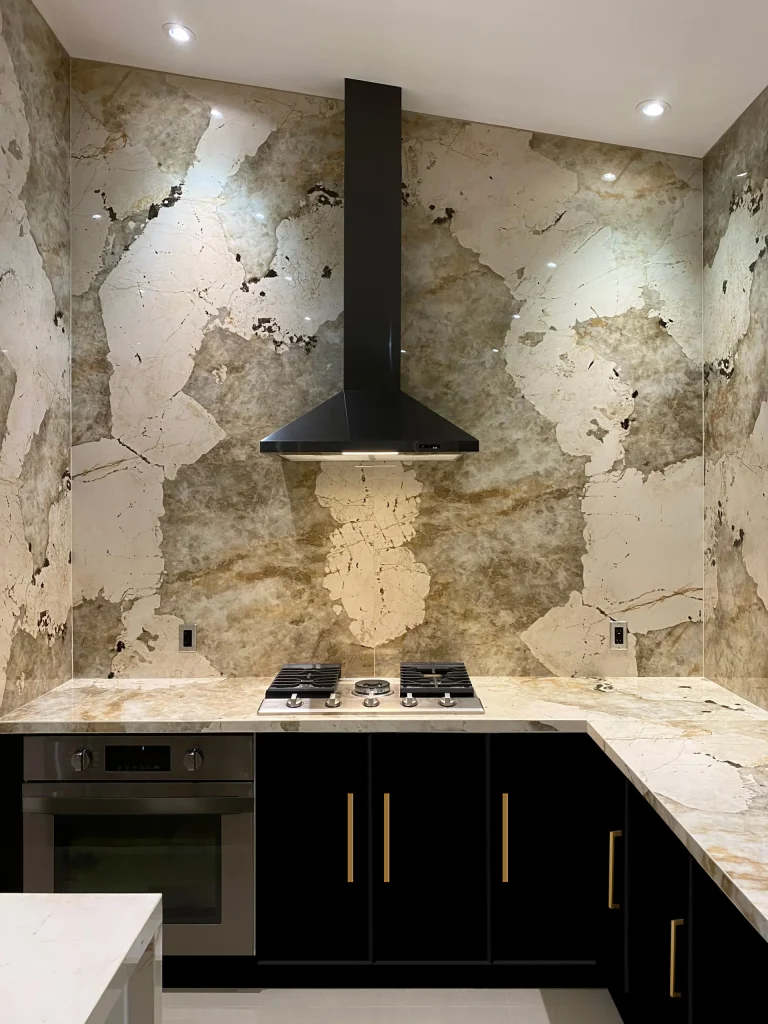
Dekton vs Quartz: The Differences
Appearance & Design
Dekton countertops offer a wide variety of design options, ranging from solid colours to intricate patterns mimicking natural stone, metal, concrete and wood. The material’s high resistance to UV light means that Dekton surfaces won’t fade over time, maintaining their vibrant colours and patterns for many years. This makes Dekton an excellent choice for both indoor and outdoor applications.
Quartz countertops, while also versatile in design, often mimic the appearance of natural stones like granite or marble. The manufacturing process allows for a broad spectrum of colours and finishes, including matte and glossy. However, unlike Dekton, quartz may not be suitable for outdoor use as prolonged exposure to UV rays can cause discoloration.
Durability
Dekton is well known for its exceptional durability. It is resistant to scratches, stains and extreme heat, making it an ideal surface for kitchens where heavy duty use is common. Its non-porous characteristics also means that it does not require sealing, offering a low maintenance solution for homeowners.
Quartz, while also durable, has a lower heat resistance compared to Dekton. Although it can withstand the heat from everyday cooking, it is advisable to use trivets or mats to protect the surface from hot pots and pans. Quartz is also resistant to stains and scratches, but unlike Dekton, it may require sealing to maintain its appearance over time.
Cost & Availability
Both Dekton and quartz countertops can be on the higher end of the cost spectrum, but their prices vary depending on factors such as thickness, design and installation challenges.
Dekton’s unique manufacturing process and durability features can make it slightly more expensive than quartz. However, the long term benefits and minimal maintenance costs can offset the initial investment.
Quartz is widely available and can be sourced from numerous suppliers, making it more accessible for homeowners. The cost of quartz can also vary, with more elaborate designs or higher end brands commanding higher prices.
Choosing the Right Material for Your Kitchen Countertops
When deciding between Dekton vs Quartz, consider your kitchen’s specific needs and your design preferences. If you require a surface that can withstand high heat and heavy use, Dekton’s superior durability might be the best choice. Its wide range of design options also allows for a unique and personalized kitchen aesthetic.
For both Dekton and quartz, their extensive colour and pattern options are perfect for homeowners looking to achieve a natural stone look without the associated maintenance. Their non-porous surface ensures a hygienic environment, making it ideal for food preparation.
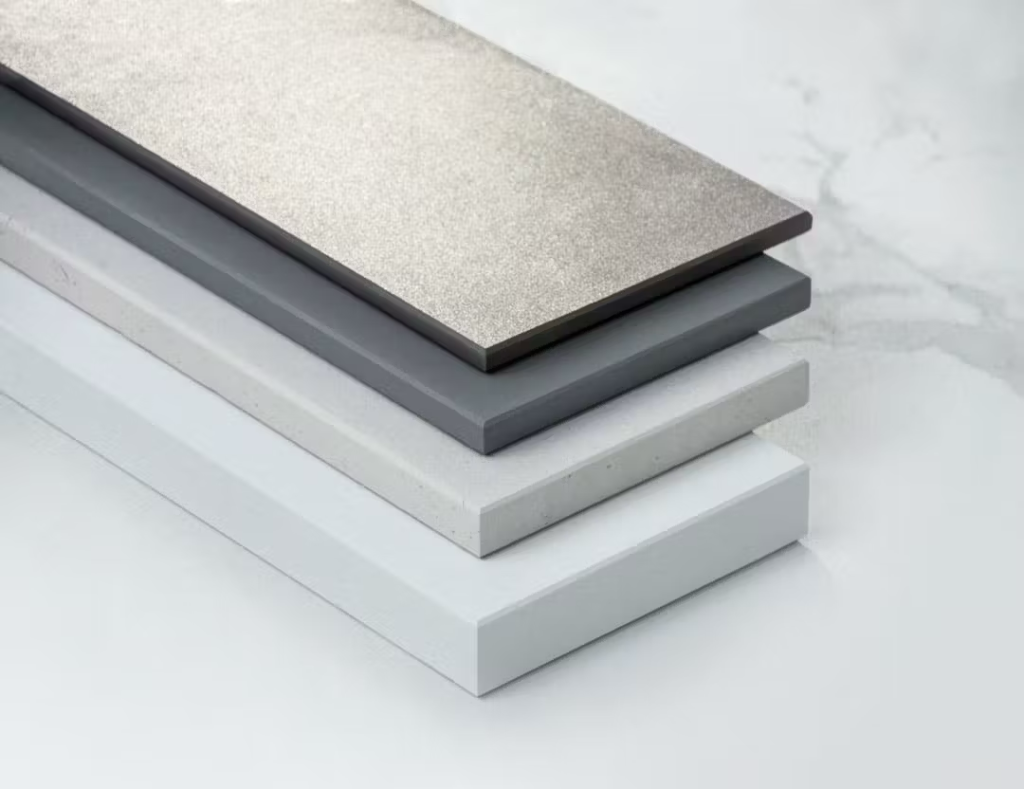
Dekton kitchen countertops are renowned for their resistance to scratches, stains and thermal shock, making them an excellent choice for busy kitchens.
Ready to Choose the Ideal Kitchen Countertop for Your Next Project?
In the end, the choice between Dekton vs Quartz comes down to your specific needs, budget and aesthetic preferences. Both materials offer unique benefits that can enhance the functionality and beauty of your kitchen. At Coco Tile, we offer a wide selection of Dekton and quartz countertops, perfect for any kitchen design. Our expert team is here to help you choose the right material and provide professional installation services.
Ready to transform your kitchen with beautiful and durable countertops?
Contact Coco Tile today to learn more about our Dekton and quartz options. Let us help you create the kitchen of your dreams!
